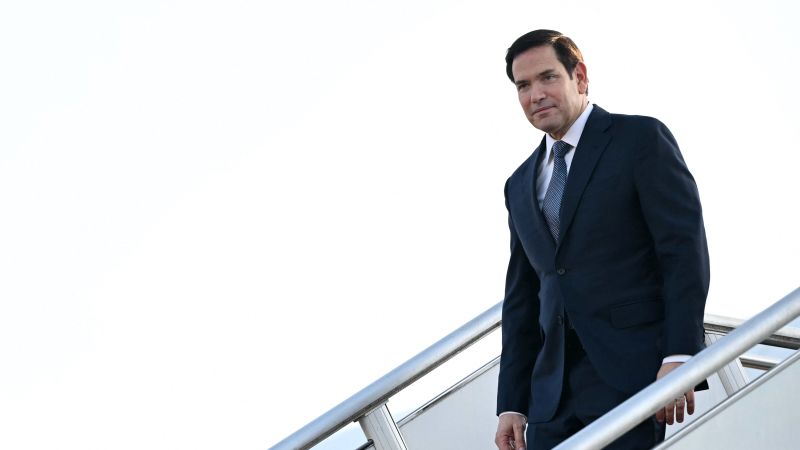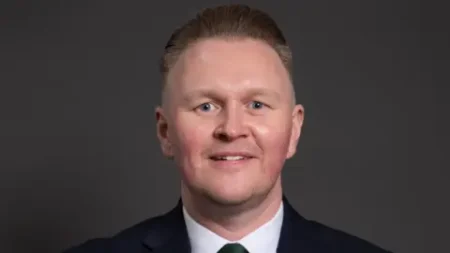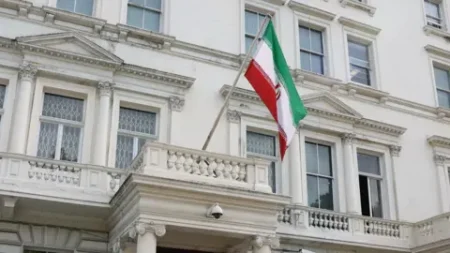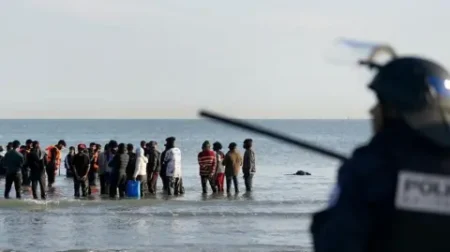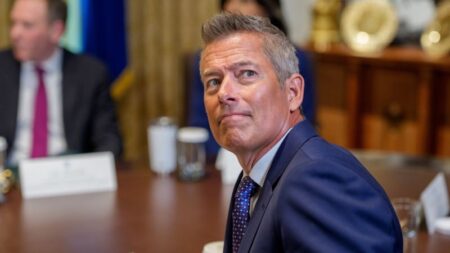Secretary of State Marco Rubio’s diplomatic efforts are gaining momentum as he begins a vital meeting with Russian Foreign Minister Sergey Lavrov in Malaysia. This encounter comes shortly after heightened tensions regarding the ongoing conflict in Ukraine. President Donald Trump expressed frustration earlier this week over Russian President Vladimir Putin’s reluctance to engage in peace talks with Ukraine, underscoring the importance of this meeting in the broader context of international relations.
The meeting is taking place on the sidelines of the Association of Southeast Asian Nations (ASEAN) gathering, intended to bolster alliances in the region. However, the Ukraine war has shifted the focus, placing a spotlight on the complexities of diplomatic engagement amidst escalating conflicts. Despite the weight of the situation, neither Rubio nor Lavrov made public statements ahead of their discussions; Rubio’s response to questions remained ambiguous, concluding with a lighthearted wink towards Lavrov.
Trump’s reiteration of the necessity for Ukraine to receive defensive weapons further complicates the situation, especially following a brief suspension of weapon shipments by Secretary of Defense Pete Hegseth. This decision reportedly took Rubio and others in the administration by surprise, causing confusion about the continuity of U.S. military support for Ukraine. Subsequent to the halt, Trump announced a partial resumption of arms shipments, layering the discourse on military aid in the context of ongoing Russian aggression.
In stark terms, Trump criticized Putin, asserting that he was not treating human beings decently and accusing him of inflicting considerable harm on the Ukrainian population. The urgency of these remarks highlights the moral complexities entwined in geopolitics, especially in light of Russia’s recent military actions — including an extensive drone assault involving over 700 drones, as reported by Ukraine’s Air Force.
The significance of this meeting isn’t merely rooted in the current climate but also in the history of communications between Rubio and Lavrov. Having previously met in Saudi Arabia earlier in the year, their ongoing dialogues have yet to yield a ceasefire despite concerted efforts by the U.S. to facilitate dialogue between Ukraine and Russia. Trump’s formerly conciliatory approach to Putin has transitioned to a more combative stance as the war persists.
Simultaneously, Rubio’s participation in the ASEAN gathering is further complicated by Trump’s recent trade tariff announcements. The impending tariffs, which could impact numerous ASEAN countries, add another layer of diplomatic intricacy to Rubio’s visit. The socio-economic dynamics of trade and defense intertwine, imposing challenging discussions about the future of trade relations and the U.S. role in the region.
Amidst these geopolitical challenges, Rubio articulated a commitment to nurturing alliances in Asia while maintaining a strategic focus on the challenges posed by China. This reaffirmation of U.S. engagement in the Indo-Pacific region is especially crucial as these nations contend with regional power shifts. In consolidating partnerships with countries like Australia, Japan, and India, Rubio aims to foster a united front in addressing shared security concerns.
The broader implications of Rubio’s diplomatic trip extend beyond immediate issues of security and military aid; they also showcase the U.S. effort to uphold its influence in a region critically positioned at the intersection of global economic and security interests. The message sent during these discussions will be measured against the backdrop of Trump’s tariff declarations, which he asserted was central to his foreign policy agenda.
Listening to Rubio’s engagement with ASEAN counterparts, he underscored the imperative for the U.S. to remain actively involved in the Indo-Pacific, countering narratives that suggest distraction by events in other regions. As he stated firmly, the trajectory of global dynamics in this century will heavily feature the realities and developments arising from this part of the world.
In summary, both the meeting with Lavrov and the broader engagements in Malaysia emphasize the intricacies of U.S. foreign policy—a balancing act of maintaining military commitments, navigating economic pressures, and fostering diplomatic relations in a highly volatile region. Rubio’s actions and statements are a reflection of America’s evolving stance amidst global challenges, striving to reaffirm commitments while addressing a multitude of pressing concerns that define the current international landscape.





